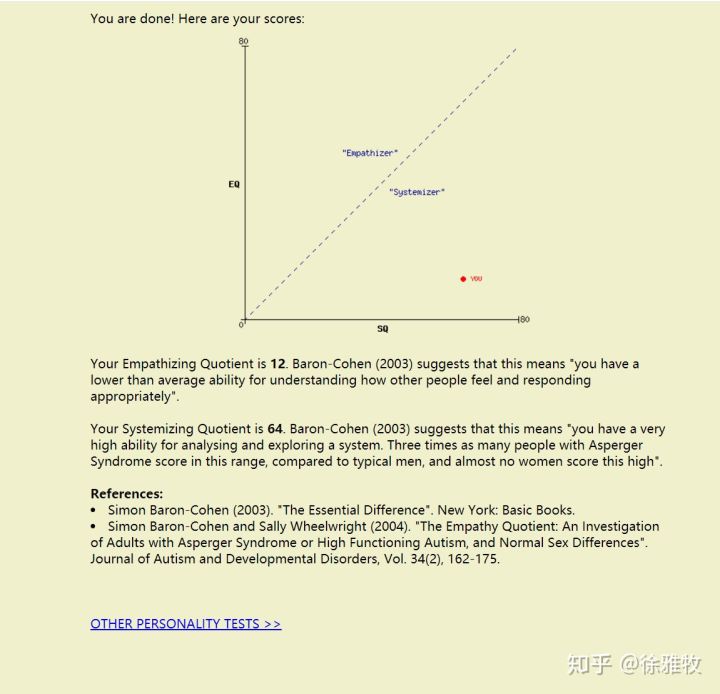作者:徐雅牧 来自:知乎
关于自闭症研究中有个共情-系统化理论,这个理论将人的思维方式分为共情和系统化能力两个维度,共情指的是识别他人的情绪和感受的能力,系统化是指分析和探索系统的能力。根据大规模的统计调查,典型的女性平均来说是EQ > SQ,而典型的男性平均来说是SQ>EQ,自闭症患者无论男女,平均来说都是SQ>EQ的。
根据我对这两个概念的理解,我猜测共情和MBTI中的F(Feeling)正相关,而系统化和MBTI中的思维(Thinking)正相关。
测试地址:
我的测试结果:
Your Empathizing Quotient is 12. Baron-Cohen (2003) suggests that this means "you have a lower than average ability for understanding how other people feel and responding appropriately".
Your Systemizing Quotient is 64. Baron-Cohen (2003) suggests that this means "you have a very high ability for analysing and exploring a system. Three times as many people with Asperger Syndrome score in this range, compared to typical men, and almost no women score this high".
翻译:
你的共情商是12分。Baron-Cohen (2003) 认为这意味着“你在理解他人怎么感觉和恰当地回应方面的能力比平均值低”。
你的系统化商是64分。Baron-Cohen (2003) 认为这意味着“你有很高的分析和探索系统的能力。在这个范围内,阿斯伯格综合症患者的得分是典型男性的三倍,而且几乎没有女性得分这么高。”
参考资料:
